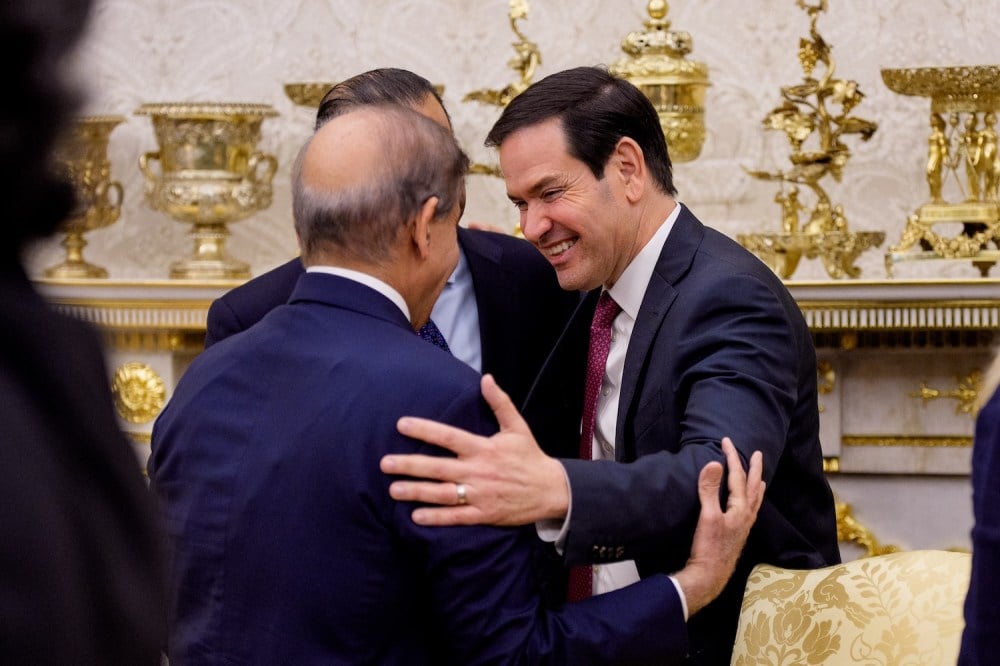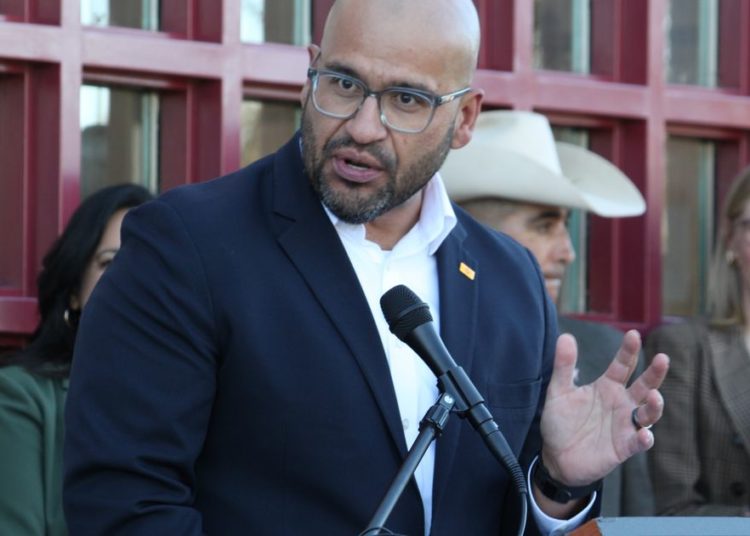Welcome to Foreign Policy’s South Asia Brief.
The highlights this week: Pakistan reportedly makes an offer to the United States to develop and operate an Arabian Sea port, an internet outage in Afghanistan sows confusion about the Taliban’s intent, and India sets a date for a key state election in Bihar.
What to Make of Pakistan’s Port Pitch
Last week, the Financial Times reported that several advisors to Pakistan Army chief Asim Munir had approached the Trump administration with an offer for U.S. investors to build and operate an Arabian Sea port in Pasni, a fishing village in Balochistan province, for commercial purposes.
According to the Times, the port would facilitate U.S. access to Pakistan’s critical minerals, including through the development of a rail terminal. A senior Pakistani official told local media that Munir had no official advisors—meaning that anyone cited in the Times would be informal advisors discussing a port proposal not endorsed by the Pakistani state.
Still, Islamabad has not denied that such an offer was made. And anyone advising Munir, even in an informal capacity, would presumably have some link to the government or military. In this sense, the reported port proposal provides a useful window into how Pakistan’s broader strategic community is thinking.
There are two notable takeaways. First, the offer signals a greater willingness from Pakistan to better balance ties with the United States and China. In recent years, Islamabad’s relationship with Beijing has been much stronger than that with Washington, driven by infrastructure development and increases in military assistance. However, U.S.-Pakistan ties have enjoyed a resurgence in President Donald Trump’s second term.
Pasni is just 70 miles from Gwadar, home to a port that China has sought to develop—somewhat unsuccessfully—for several years as part of its Belt and Road Initiative. Beijing likely wouldn’t be enthused by a new U.S.-run port so close to its own investment, particularly one that handles critical minerals shipments.
But it wouldn’t hurt Pakistan’s ties with China—and it could show Washington that Islamabad is willing to do more to boost relations. Additionally, the port proposal appears to be a play to give the United States some stake in the security of Balochistan, a resource-rich province that is also one of Pakistan’s most violent.
Islamist militants periodically carry out attacks in the province, and ethnic Baloch insurgents have long targeted large development projects. Pakistan has struggled to ease the violence, with scorched-earth counterterrorism tactics resulting in wider repressive actions that further aggrieve local communities and fuel insurgency.
Those behind the port offer may hope that if the United States has concrete investments in Balochistan, it may be willing to increase counterterrorism assistance to Pakistan. The United States recently formally designated the Balochistan Liberation Army, the province’s most potent insurgent force, as a terrorist group; the two other active groups in the region, Tehrik-i-Taliban Pakistan and the Islamic State-Khorasan, were already designated.
In reality, a formal offer of a port deal to the United States—and U.S. acceptance—is a long shot. Islamabad may not want to be burdened with another security risk in a restive region, and furthermore the port would risk antagonizing Iran, as Pasni is around 100 miles from the two countries’ border.
Likewise, the Trump administration may be intrigued by an opportunity to better access critical minerals and to strengthen U.S. influence in a strategically significant area—but it also may be scared off by the prospect of overseeing a major infrastructure project in a dangerous place.
The Pasni offer may be a useful case study of Pakistan’s current strategic thinking, but the port is unlikely to materialize anytime soon, if at all.
What We’re Following
Afghanistan internet outage sows confusion. Last Monday, a nationwide internet shutdown hit Afghanistan. In mid-September, the Taliban regime began curbing internet access in certain provinces, saying it was intended to reduce immorality—though the group didn’t specifically link last week’s blackout to the curbs.
A confusing set of events then took place. On Wednesday, most internet service was suddenly restored, and a statement initially attributed to the Taliban claimed that the outage was caused by malfunctioning fiber-optic cables and not any deliberate action. The Taliban quickly claimed that statement was false, but they still didn’t give an explanation for the outage.
It’s possible that the Taliban, who seek international legitimacy, ordered the outage but decided to end it after international outcry. The group’s Kandahar-based supreme leadership, which is behind the anti-immorality campaign, may not have wanted the reversal publicized because it wouldn’t want to be seen as soft on the ideological issues that drive its worldview.
India announces Bihar election schedule. On Monday, India’s Election Commission announced that the state of Bihar would run a vote in two phases, on Nov. 6 and 11. India’s ruling Bharatiya Janata Party (BJP) will contest a series of key state elections in the coming months, but the one in Bihar will be one of the most important.
Bihar is India’s third-most populous state and therefore a major electoral prize. All 243 seats in the Bihar assembly are up for grabs. The state government is currently run by a coalition that includes the BJP, though it will face considerable competition during the campaign.
One interesting storyline involves Prashant Kishor, an election strategist-turned-politician. He is leading a new party that he says will not be involved in any electoral alliances, suggesting an uphill battle. However, some observers note that his experience as a strategist could be an asset—and possibly lead to some electoral upsets.
Anti-corruption is one of Kishor’s core electoral planks, and he has heavily criticized leaders of Bihar’s two main political alliances on governance issues.
Inflation in Bangladesh. Bangladesh’s Statistics Bureau released data this week showing that inflation rose to 8.36 percent in September, up from 8.29 percent in August. The modest rise is notably less than the nearly 10 percent inflation that the country registered at the same time last year, but it continues a three-year trend of some of the highest inflation figures in South Asia.
Economists attribute inflation in Bangladesh to various factors, from the depreciation of the country’s currency to a heavy dependence on imports. They warn that failing to bring inflation down could increase the gap between income and living costs and undercut broader economic stability.
Though the inflation began under Bangladeshi Prime Minister Sheikh Hasina, the interim government that succeeded her last year has clearly failed to address the problem. It’s one of the various reasons why the Bangladeshi public has become increasingly unhappy about the administration’s performance and is keen for elections—scheduled for February.
Under the Radar
On Monday, during an Indian Supreme Court proceeding, lawyer Rakesh Kishore hurled a shoe at Chief Justice B.R. Gavai. Throwing shoes at people in public is considered an especially egregious humiliation in India, and the top figures in India’s judiciary are generally well respected. Kishore’s act was thus lambasted across the political spectrum.
Indian Prime Minister Narendra Modi condemned the incident on X. Kishore was suspended, though Indian officials say he won’t face charges.
In an interview with the Print, Kishore said he threw the shoe because of something Gavai said at a proceeding last month. Gavai rejected a plea to reconstruct an idol of the Hindu god Vishnu in the Indian state of Madhya Pradesh; in a statement, he said, “Go and ask the deity himself to do something.” Gavai was slammed for the comment, with people accusing him of mocking Hinduism.
FP’s Most Read This Week
- Trump’s Speech to Generals Was Incitement to Violence Against Americans by Kori Schake
- How Military Leaders Should Respond to Trump’s Norm-Busting by Peter D. Feaver and Heidi A. Urben
- How a U.S. Government Shutdown Could Impact Washington’s Foreign Policy by Rishi Iyengar
Regional Voices
In the Print, writer T.N. Ninan argues that India should take a cue from China and cultivate more engineers in leadership roles. “[W]e could consider how much of an ‘engineering state’ India needs to become, and what leadership role engineers should play in politics and the administration, as well as in business and industry,” he writes.
In the Daily Star, activist Nazmus Sadat writes about opportunities for Bangladesh in artificial intelligence: “AI is no longer a Silicon Valley experiment; it has become a global reality. For Bangladesh, and for much of the Global South, it is both a test and an opportunity,” he writes. “The question is not whether the wave is coming—it is whether we will ride it.”
A Daily Mirror editorial praises Sri Lanka’s Parliament for passing an amendment that bans corporal punishment: “The present government’s actions to prevent attacks on children, whether in schools or even in their homes, is the first step in the direction of taking away the impunity for crimes some Lankans have committed without so much as a second thought.”
The post Pakistan Courts Trump With Port Offer appeared first on Foreign Policy.




